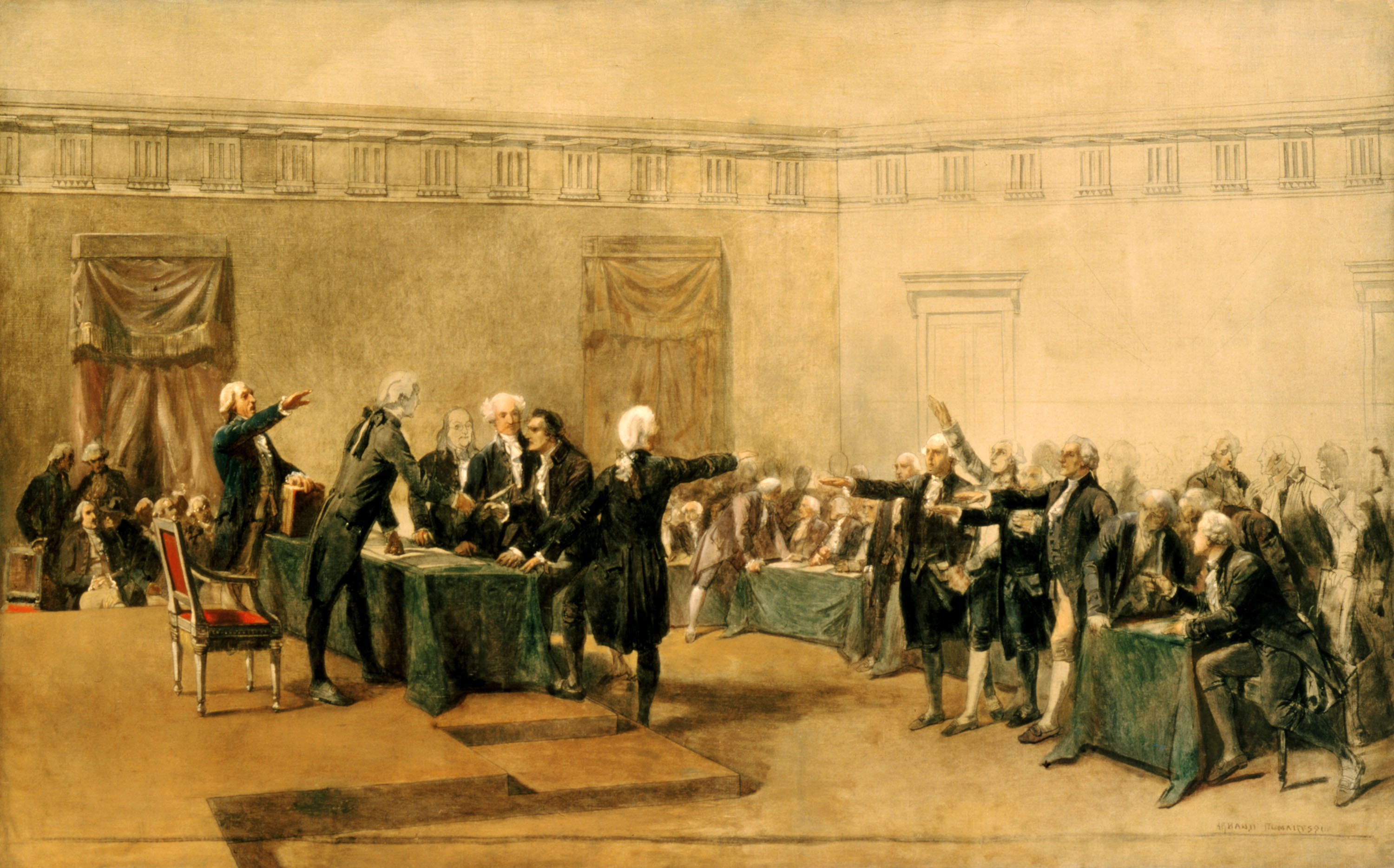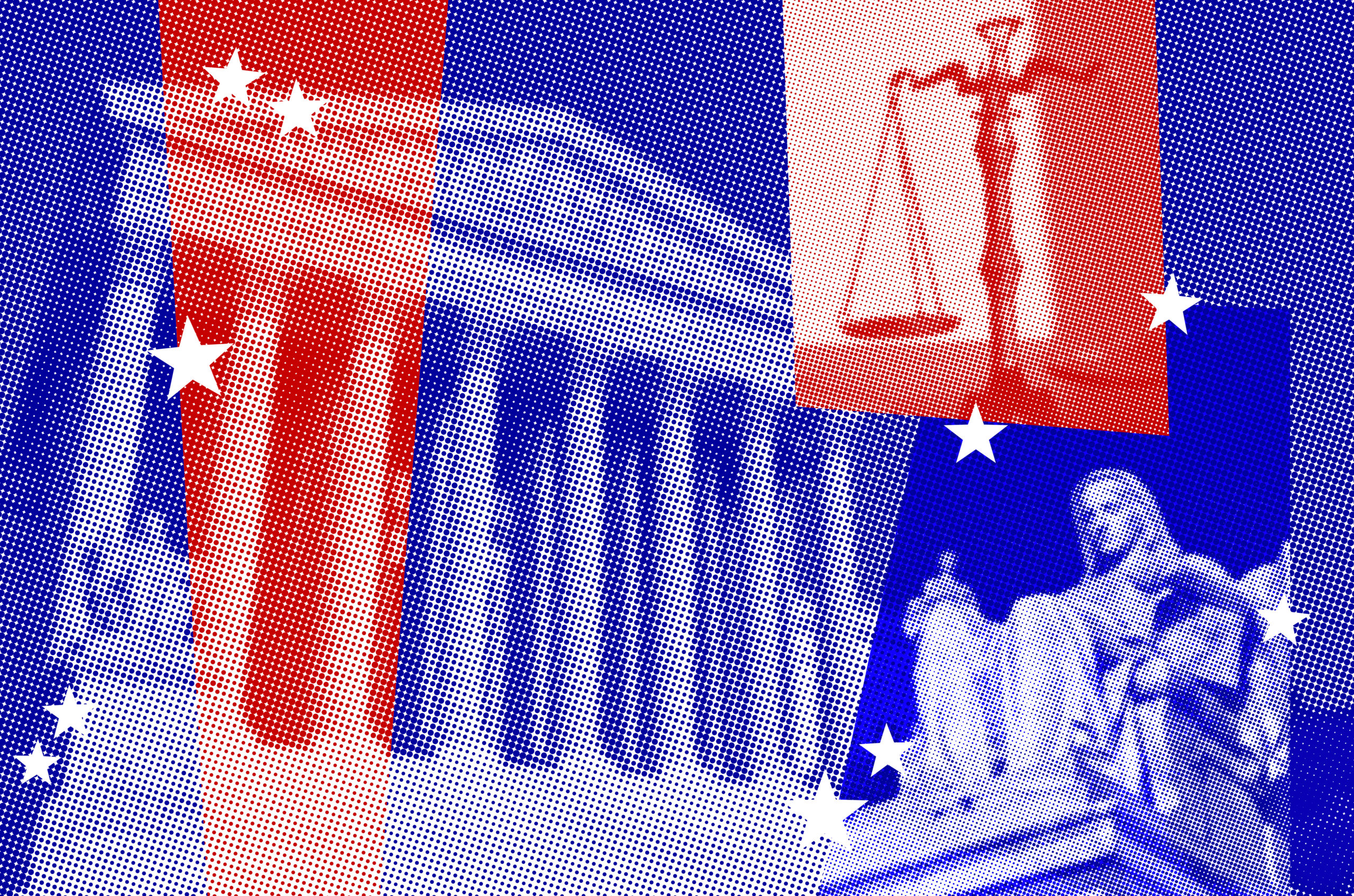The 14th Amendment does not confer automatic citizenship.
Birthright Citizenship and the American Founders

They wholly rejected British common law on this question.
Frederick Douglass once denounced the Supreme Court’s ruling in Dred Scott v. Sandford as constituting “an open, glaring, and scandalous tissue of lies.” For the massive violence it did to both the Constitution and to the principles upon which that charter is based, that opprobrium is richly deserved.
Forty-one years later, the Court issued a decision that deserves, but has largely avoided, the same kind of vituperation. In United States v. Wong Kim Ark, the Court maintained that the Constitution, particularly the 14th Amendment, incorporated the British common law doctrine of birthright citizenship, and that America’s Founding Fathers intended that this doctrine should prevail in America.
For quality of constitutional and historical reasoning, Wong Kim Ark is every bit as defective as Dred Scott. Yet while Dred Scott is universally condemned, Wong Kim Ark’s conclusions are generally accepted, even if few today are familiar with the case. The pernicious shadow of Wong Kim Ark continues to poison our law and policy regarding immigration.
In his recent essay, Edward J. Erler has rendered yeoman service in exposing the falsity of the Wong Kim Ark majority’s interpretation of the 14th Amendment. The Court’s misinterpretation of the Constitution, however, is only half its problem. Although the original Constitution does not elaborate a clear definition of citizenship (hence the need for the 14th Amendment), the principles of the Founding and the documentary evidence reveal overwhelmingly that America’s Founding Fathers rejected birthright citizenship. Instead, they embraced the idea that citizenship is properly based on mutual and reciprocal consent.
Rejecting Birthright Citizenship
America’s Founders well understood the concept of birthright citizenship as a prevailing doctrine in 18th-century British law. Erler correctly traces the defense of birthright citizenship to Sir Edward Coke’s 1608 opinion in Calvin’s Case and Sir Edward Blackstone’s Commentaries on the Laws of England. These English sources, as Erler notes, speak in the language of subjection rather than citizenship, and both affirmed that
Natural allegiance is such as is due from all men born within the king’s dominions immediately upon their birth. For immediately upon their birth, they are under the king’s protection; at a time too, when (during their infancy) they are incapable of protecting themselves. Natural allegiance is therefore a debt of gratitude; which cannot be forfeited, cancelled, or altered….
The subject owes allegiance to his lord from birth, because the lord protects him when he is unable to protect himself. Moreover, allegiance and protection are reciprocal; the price of the sovereign’s protection is lifetime subjection unless he chooses to release his subject.
There is ample evidence, however, that the Founders rejected this position. In his 1774 essay “A Summary View of the Rights of British America,” Thomas Jefferson wrote that “our ancestors, before their emigration to America, were the free inhabitants of the British dominions in Europe, and possessed a right which nature has given to all men, of departing from the country in which chance, not choice, has placed them, of going in quest of new habitations, and of there establishing new societies, under such laws and regulations as to them shall seem most likely to promote public happiness.” In his 1791 Lectures on Law, James Wilson stipulates at least three distinct conditions under which individuals may renounce their former allegiance and depart from their native country.
The Pennsylvania Constitution of 1776 declared, “That all men have a natural inherent right to emigrate from one state to another that will receive them, or to form a new state in vacant countries, or in such countries as they can purchase, whenever they think that thereby they may promote their own happiness.” The Vermont Constitution, adopted the subsequent year, employs nearly identical language: “That all people have a natural and inherent right to emigrate from one State to another, that will receive them, or to form a new State in vacant countries, or in such countries as they can purchase, whenever they think that thereby they can promote their own happiness.” As these public documents attest, the Founders clearly rejected the British doctrine of birthright citizenship.
Equality, Consent, and Citizenship
Rather than basing citizenship on location of birth, America’s Founders articulated a doctrine of citizenship based on the principle of consent found in the Declaration of Independence and related documents. In the “Summary View,” Jefferson told the British that their king is our king—not because we were born his subjects but because we consented to his authority. The fact that the colonists may have been born subjects of the British crown is irrelevant. The corollary of Jefferson’s logic is that, had the colonists not consented, not even the king would have a legitimate claim to rule. It also follows that because the colonists had only consented to the British king’s rule, Parliament had no rightful power over them. They had instead erected their own legislatures to make laws for them.
The principle of consent is the direct consequence of “all men are created equal.” As Jefferson would later explain, “The mass of mankind has not been born, with saddles on their backs, nor a favored few booted and spurred, ready to ride them legitimately, by the grace of god.” The principle of natural equality means that no man may rightfully govern another man without that other’s consent. This consent is the basis of citizenship in newly formed political societies. The Massachusetts Constitution of 1780 states, “The body-politic is formed by a voluntary association of individuals: It is a social compact, by which the whole people covenants with each citizen, and each citizen with the whole people, that all shall be governed by certain laws for the common good.” Without this mutual and reciprocal consent, there is no political relationship; there is no citizenship.
The same principle applies to the admission of new members into an existing political society. This is reflected in the series of naturalization laws enacted by the first Congresses under the Constitution in 1790, 1795, 1798, and 1802. These laws set out the conditions under which the American people would consent to a foreigner becoming a member of our society. If a foreigner met these conditions, he would formally accept the offer of citizenship in open court, swearing allegiance and renouncing his previous citizenship, including, by name, the sovereign of his country of origin. Again, without this mutual and reciprocal consent, there could be no citizenship.
Consent and the Problem of Children
When citizenship is based on location of birth, the question of the citizenship status of minor children is simple. The transition to citizenship based on consent, however, requires a rethinking of the place of minor children within the body politic. This is vital, as it means correctly distinguishing citizens from aliens, and identifying who has a right to be in the United States.
The immediate problem is that children cannot properly give consent. Equality and consent are both doctrines derived from “the Laws of Nature and of Nature’s God.” Natural law is that portion of the law of God which is accessible to man via his unassisted reason. Children, however, do not possess fully formed reasoning capacities. It’s why we don’t let children vote. It’s why we have age requirements for everything from purchasing certain products to getting married. Children therefore cannot give the consent that is necessary for citizenship.
In ascertaining how the early American republic understood the status of children, the early naturalization laws cited above are helpful. When a person was naturalized as a U.S. citizen, the 1790 Naturalization Act declares that “the children of such persons so naturalized, dwelling within the United States, being under the age of twenty-one years at the time of such naturalization, shall also be considered as citizens of the United States.” The 1795 Naturalization Act uses almost the same language, while making provision for the children of U.S. citizens born abroad: “The children of citizens of the United States, born out of the limits and jurisdiction of the United States, shall be considered as citizens of the United States,” thereby completing the uncoupling of citizenship from location of birth.
These naturalization laws reflect the idea that minor children are under the authority of their parents. When the parent became a United States citizen, the minor children are presumed to follow their parents into citizenship. While these children are not fully citizens since they cannot participate in political life, they are fully under the protection of the laws of the United States and therefore have a right to reside in the U.S. Upon reaching the age requirements specified in law, they may fully participate in citizenship. In all these senses, they are treated as the children of natural-born citizens.
The presumption of citizenship for the children of citizens reflects the influence of the Swiss jurist Emer de Vattel, who argued, “As the society cannot exist and perpetuate itself otherwise than by the children of the citizens, those children naturally follow the condition of their fathers, and succeed to all their rights.” This is a notable departure from the requirement that all citizens give some kind of explicit consent as a condition of citizenship, which owes much to the philosopher John Locke. The children of citizens, natural born or naturalized, are not required to go through the formal process of swearing allegiance. They are presumed to be citizens and exercise the rights of citizenship upon reaching adulthood.
Implications for the Children of Non-Citizens
The presumption of citizenship, however, extends only to the children of citizens. The children of non-citizens “naturally follow in the condition of their” parents, meaning that they are presumed to be citizens of the country where their parents hold citizenship. This properly applies whether the parents are in this country legally or not. The children of non-citizens are only presumed to acquire U.S. citizenship rights if and when their parents are naturalized. Whether the parents are in the country legally as tourists, students, or under work visas such as the H-1B program, or if the parents are in the country illegally, having overstayed visas or simply snuck into the country, their children are not citizens.
Getting our understanding of citizenship clear brings sanity to a host of contentious issues regarding immigration and naturalization. For instance, a proper understanding of citizenship means that there is no such thing as an “anchor baby.” Aliens, who are the parents of children who were born in the United States, can and should be deported if they’re in violation of our immigration laws. Their children, who are not United States citizens, should be deported with them back to their home country. Similarly, this model of citizenship wholly obliterates the concept of birth tourism. The children of such foreign nationals are not U.S. citizens, full stop.
The Supreme Court’s assertion in Wong Kim Ark that the Founders had adopted the British common law doctrine of citizenship is simply nonsensical. It ignores clear arguments and a mountain of documentary evidence. Being born within the physical borders of the United States, by itself, meant nothing. The Founders understood birthright citizenship, and they explicitly rejected it. They based citizenship on consent, and the only exception was for the children of bona fide citizens of the United States. The 14th Amendment, as Edward J. Erler demonstrates, incorporated this understanding. Getting back to it means taking the first step in getting back our sovereignty and our identity as a nation.
The American Mind presents a range of perspectives. Views are writers’ own and do not necessarily represent those of The Claremont Institute.
The American Mind is a publication of the Claremont Institute, a non-profit 501(c)(3) organization, dedicated to restoring the principles of the American Founding to their rightful, preeminent authority in our national life. Interested in supporting our work? Gifts to the Claremont Institute are tax-deductible.
It’s time to find a reasonable way forward.
The Citizenship Clause is misunderstood.
The Supreme Court should return to the original understanding of the 14th Amendment’s Citizenship Clause.
Are these the “weeks where decades happen”?
What looms over the birthright citizenship debate.






